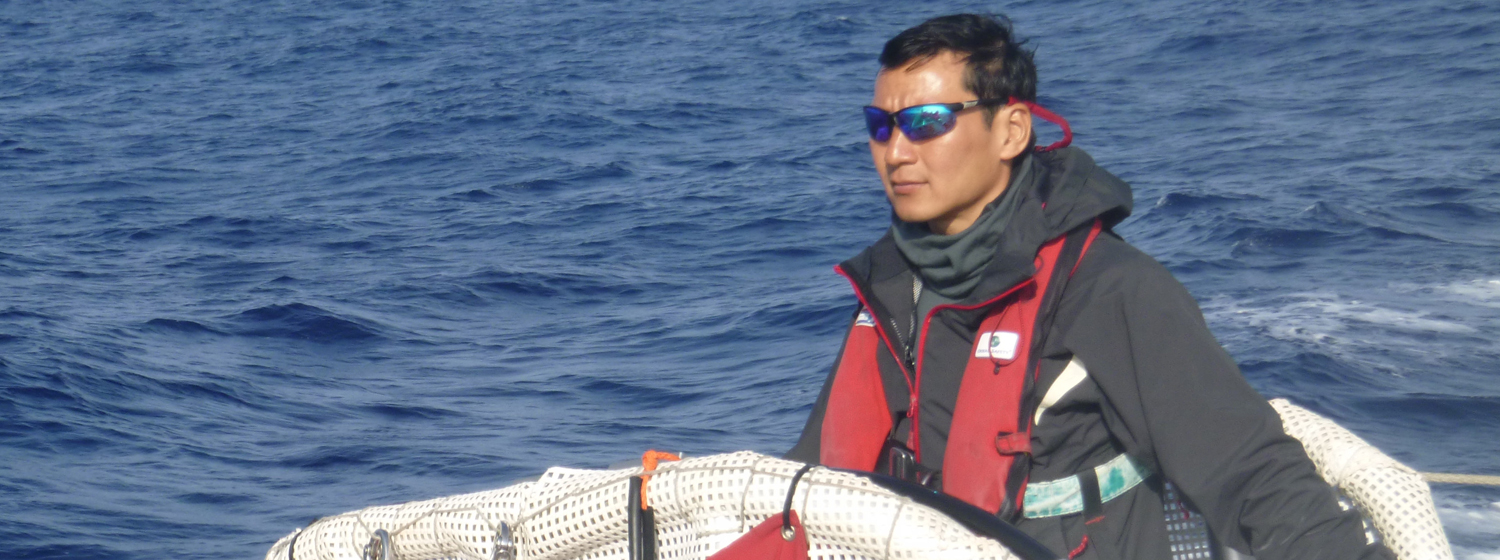One of the most crucial of these roles is the medic, working with the skipper, who
is responsible for medical care on board your yacht throughout the race; the
medical crew member role helps to ensure that medical cases are correctly dealt
with on board.
Medical crew also ensure that the medical kit is properly maintained and that medical
resupply requests are made. Daniel Ho, a round the world crew member and Doctor
from Australia in the last edition of the race was the on board medic for his
team, Team Garmin.
Daniel sat down with Clipper Race HQ to talk about his role of Medic.
Clipper Race: When did you learn of the medic position within the race, what
made you decide to volunteer?
Daniel: I first found out about my role as medic for Team Garmin shortly after Crew
Allocation. I was not able to make it to the allocation but shortly after it was
announced, our nominated chief of staff quickly put together team members with
different skill sets and set about allocating roles.
Clipper Race: How did you prepare for the role?
Daniel: With no prior sailing experience, I was not sure of what kind of
injuries that I would encounter so set about doing some research. My background
in general practice with mandatory regular first aid and advance life support training
made it less daunting.
As well as the role of medic, I also took it upon myself to also look into nutrition
for the crew, in particular multivitamin and protein supplements. It helps to
develop a good relationship with the crew members early and getting everyone’s
input and expertise – the victuallers were also important in this capacity and
we had other crew members who were also keen on staying healthy during the
race.
The Clipper
Race does provide a medical briefing via PRAXES, its global medical emergency
support partner. During the brief they prepared medics of what to expect and
also basic skills and first aid advice. It was entertaining and kept light
hearted. It’s also a reminder that if anyone who chose to take on the medic
role, it is not necessary for them to be in the medical or health related
field.
The key point is to stay calm and use your common sense, and that PRAXES would
be available via satellite communication to assist with advice.
For those who are concerned regarding legal ramifications and insurance factors
that may arise in their role as medic, it is important to remember that ultimately
your skipper is the one who legally responsible for the crew’s welfare, medics
only provide assistance. It does help to keep records in the ships log, as well
as a medical logbook, and also discuss management plans with the skipper and
PRAXES.
Clipper Race: What kind of responsibilities were you given in the lead up to
and during the race?
Daniel: In summary, what I found I was doing in my role as medic leading up to
the race was:
- Checking inventories to make sure everything is there and that they were all
in date.
- Keeping a
tab on stocks and requesting requisition before you arrive in port so that it
can be delivered on time.
- Medics
don’t work alone so it is useful to have others interested or with similar
skill sets to share roles or assist with as emergencies may arise when you may
not be on watch.
-
Researching and organising supplements to ensure crew would remain healthy for
duration of race. As well as having a medic role, leading up to race prep week,
you would also assist in getting the boat ready for the race.
Clipper Race: How did you find the responsibilities you were given, were they
manageable and did you enjoy the role?
Daniel: The responsibilities I had as a medic was generally manageable and did
not take up much more additional time to my workload. It does require that you
are available at all times if any medical emergency arise.
Common
duties involved reminding crew about hydration, sunscreen, and preventative
advice. Dealing with seasickness, dehydration, aches and pains including
headaches were the most common problems encountered. Less frequently were
issues with muscular injury, rib injury, rope burns and galley accidents. More
serious injuries can arise although generally it was the exception rather than
the rule – on our boat we had a serious head injury, rib fractures/injury, and
two lacerations requiring suturing.
I did enjoy
the role and I think that my medical background also provided some reassurance
for the crew. Thankfully there were not any major problems that I felt out of
my depth. I also enjoyed the camaraderie amongst other medics as we would
assist each other with advice, second opinions and supplies occasionally.
Clipper Race: What would you say to people who were considering applying
for this role?
Daniel: I would recommend it to anyone who is interested. The main criteria is having
common sense and that you do care about your crew. It does help to have some
medical experience as it certainly makes it easier, but during the 2013-14
race, other teams had medics in non-medical related fields and they were also
well looked after.
